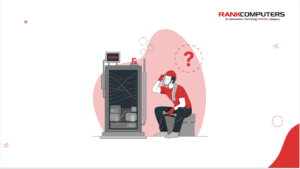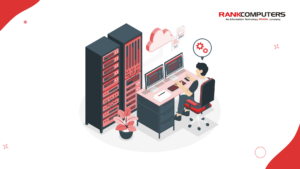Aside from the necessity of staying current with technology, being aware of our environmental impact is also crucial. The rapid pace at which we are upgrading and replacing technology has resulted in a significant amount of electronic waste.
The world generated a staggering 53.6 million metric tonnes of e-waste in 2019, but only a fraction of it was recycled. Let’s take a closer look at the causes of this problem and explore a better solution. It is critical that we strike a balance between embracing technology and protecting the environment.
Why Buying IT Equipment Could Pose an Issue
When you buy IT equipment outright, you frequently end up with excess devices that are no longer required after they have served their purpose or an upgraded version is available. These devices are then discarded and end up in landfills, adding to the growing problem of electronic waste. Precious metals, such as gold, and toxins, such as lead, found in these devices contaminate the soil and seep into groundwater, putting ecosystems at risk.
Giving in to the pressure to buy new technology feeds the cycle of waste generation and pollution, indicating unsustainable consumption. Alternatives such as renting, leasing, sharing, and responsible disposal, on the other hand, have the potential to break this pattern.
In an age where customers and stakeholders are increasingly valuing environmentally conscious companies, the gravity of this situation demands immediate action. It’s time to choose between purchasing and perpetuating waste or embracing a better alternative.
IT Rentals: A Sustainable Solution
A shift in business practise from buying new equipment to renting it can help mitigate the e-waste crisis and demonstrate your commitment to sustainability. Instead of owning equipment that is discarded once it has served its purpose, you rent it for as long as you need it and then return it for other people to use. This simple shift in approach not only reduces waste but also reduces the demand for continuous manufacturing and disposal, easing the burden on natural resources and landfills and benefiting the planet significantly.
Tangible Business Benefits of IT Rentals
Beyond corporate social responsibility (CSR) points and improved brand equity, there are tangible business benefits to embracing IT rentals:
Cost savings
IT rentals eliminate the need for large upfront costs associated with traditional purchasing. Spending a fortune on new equipment is no longer necessary!
Affordable technology
When you buy IT equipment, you run the risk of falling behind as newer, more efficient devices hit the market. With IT rentals, you can get the most recent upgrades as soon as they are released, allowing you to maintain a competitive advantage!
Reduced inventory woes
IT rentals free up space in your storage facility for devices that are no longer needed. You rent only what you need, when you need it, which reduces our inventory holding and carrying costs.
Financial flexibility
By renting, you can reduce unnecessary capital expenditure, strategically allocate resources to other parts of your company, and grow quickly.
Cheaper bills
Renting IT equipment also gives you access to low-energy technology, which lowers your electricity costs. It’s a win-win situation when you can protect the environment and reduce your utility costs.
Reduced Environmental Footprint
Every remanufactured laptop saves approximately 316kg of CO2 emissions compared to purchasing a new one. It’s the equivalent of taking 80 cars off the road for a year for just 1,000 laptops.
IT rentals play an important role in reducing your company’s environmental impact by extending the lifecycle of electronic devices. You can significantly reduce the need for constant manufacturing by reusing equipment.
Furthermore, fewer manufacturing processes use fewer raw materials, conserving valuable resources. By switching to IT rentals, your company actively contributes to lowering carbon emissions and conserving natural resources. It’s a small change with a large impact!
Conclusion
Finally, adopting IT rentals over traditional purchasing emerges as a compelling strategy for reducing electronic consumption. Rentals’ flexibility and scalability not only meet immediate operational needs, but also align with the modern ethos of sustainability. Organisations can effectively manage their IT requirements by using a rental approach rather than perpetuating the cycle of electronic waste associated with constant upgrades and disposal.



